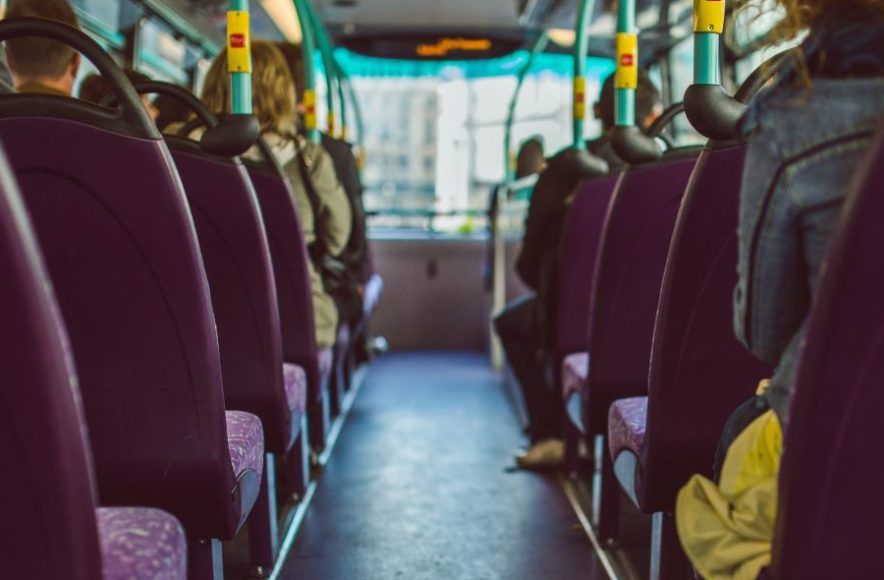United Response to tackle disability hate crimes as new figures reveal huge surge

UK charity United Response is training its staff in Leeds to help people with disabilities and their carers spot the signs of hate crimes as new figures reveal a huge rise across Leeds and West Yorkshire.
Today’s new figures from West Yorkshire Police show disability hate crimes and incidences recorded from April 2017 to January 2018 have increased by 71 percent to 915 – up from 535 the previous 12 months. In Leeds alone, disability hate crimes recorded by the police have increased from 30 in 2013/14 to 206 in 2017/18 – a 587 percent rise in just four years.
The disability charity United Response is now working with West Yorkshire Police to help people with physical and learning disabilities, Down syndrome and autism recognise the signs of hate crimes and know how to report them.
Jo Silkstone, United Response’s learning development manager for Yorkshire, said: “These shocking figures reveal that there are people out there who wish to do harm to some of society’s most vulnerable people.
“We must do everything we can to empower those who suffer this type of appalling abuse and discrimination to speak out.
“Victims must know that they don’t have to suffer in silence. With the right tools we can help them to contact the police when they do experience hate crimes.”
The charity also believes disability hate crimes are underreported despite rising figures. Only nine percent of all hate crimes and incidences recorded from April 2017 to January 2018 were marked as disability hate crimes. Many people with learning disabilities, Down syndrome or autism may also not know how to report them to the authorities or may struggle to even recognise the abuse they’ve experienced as a hate crime.
West Yorkshire Police have helped compile new training resources for the charity’s staff who work directly with people with disabilities. The resource provides guidance to support workers on how to have conversations with people with disabilities explaining what a hate crime is in easy-to-understand language. This helps people to identify whether they have been a victim of hate crime.
The charity also believes this will allow them to help the people they support to know the difference between hate crimes and incidences, to recognise the signs of hate crime and to know how to report this to the authorities. It will also show the charity’s staff how to advocate on behalf of the people they support.
Hate Crime Co-ordinator for West Yorkshire Police Kevin Brighton said: “This is often a hidden and underreported crime.
“Victims can sometimes lack the confidence in coming forward and reporting this to the authorities. Sometimes they don’t realise they have even experienced a hate crime.
“That’s why this resource pack we’ve helped put together and the training United Response’s staff have undertaken is so crucial.
“That will go a long way in helping equip people with disabilities with the knowledge they need to stand up to bullies and bigots.”
Mark Burns-Williamson, West Yorkshire Police & Crime Commissioner (PCC), added: “We all have a duty to take action and work in partnership to tackle hate crime and support victims. I fully support the work of United Response focussing on disability hate crime which is helping to make a real difference in our communities. It’s a great initiative.”
To find out more about United Response and its work supporting people with disabilities, visit www.unitedresponse.org.uk.
ENDS
Case study:
Amanda’s son who has Down syndrome was a victim of disability hate crime in York. She tells her story:
“Once, I put my recycle bins at the front of the house which one of my neighbours clearly didn’t like. She started telling my son Alex* to move them. She was quite nasty about it to both of us. It quickly spiralled into her entire family giving us both abuse and whenever he was home alone they were intimidating him, openly talking badly about me to upset him.
“Alex started ripping his clothes with the stress and anxiety, something he has done since he was little. I found enough ripped clothes to fill a black sack which was hidden behind his bed. He was losing his independence as he wanted me to be at home all the time for fear of them upsetting him. We had to call the police several times and she eventually received a police caution.
“Even after that, I had to contact the police again. This stopped her from doing anything further but her mother and her children continued the harassment. After nearly two years, we decided to move to get away from them.
“I suffer with anxiety, panic attacks and depression on and off and it made me extremely ill. I have never, ever come across someone who had disliked my son’s disability. She said she couldn’t understand why my other neighbours had him round.
“I had to ring all of Alex’s day services to explain what was happening which is distressing and they had to talk to him and keep an eye on him to stop him from ripping his clothes.
“I had to go to the doctors for help and speak to a counsellor. It still affects me. I now keep to myself and try not to engage with the new neighbours. I also keep the blinds down in the kitchen and try to go to the garage when nobody is outside.
“Even recalling it all now, I feel sick and tearful.”
*All names have been changed to protect identities.